I sell mirrors in the city of the blind
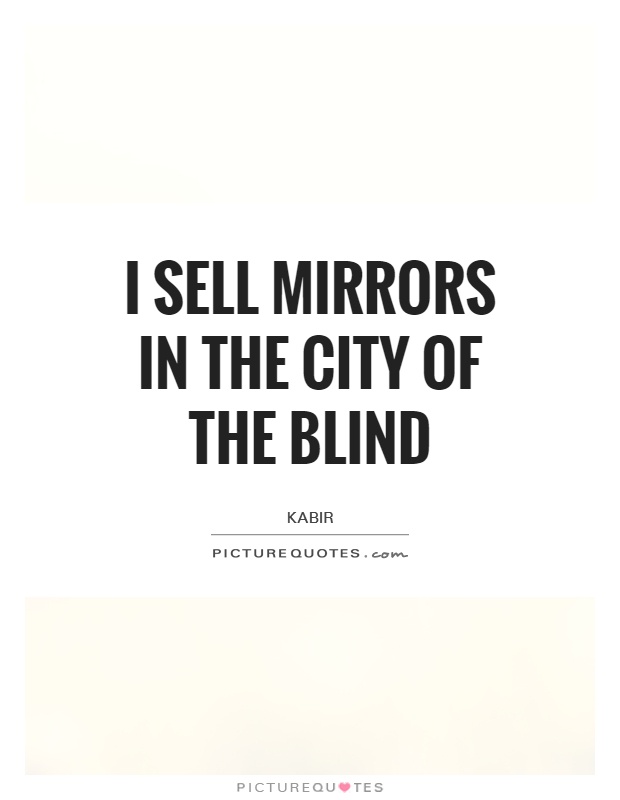
I sell mirrors in the city of the blind
In the context of the famous Indian poet Kabir, the phrase "I sell mirrors in the city of the blind" takes on a deeper and more profound meaning. Kabir was a mystic poet and saint who lived in the 15th century in India. His poetry often explored themes of spirituality, love, and the search for truth.The phrase "I sell mirrors in the city of the blind" can be interpreted in many ways within the context of Kabir's teachings. One interpretation could be that Kabir is offering a metaphorical mirror to those who are spiritually blind, in order to help them see the truth and gain insight into their own selves. In this sense, Kabir is acting as a guide or teacher, helping others to see beyond their limited perspectives and gain a deeper understanding of themselves and the world around them.
Another interpretation of this phrase could be that Kabir is offering a mirror to those who are blind to their own faults and shortcomings. By holding up a mirror to their actions and behaviors, Kabir is encouraging them to reflect on their own actions and make positive changes in their lives. This idea ties into Kabir's teachings on self-awareness and self-improvement, as he believed that true spiritual growth could only come from a deep understanding of oneself.
Additionally, the phrase "I sell mirrors in the city of the blind" could also be seen as a commentary on the state of society at the time. Kabir often criticized the hypocrisy and ignorance of the religious and political leaders of his time, and this phrase could be seen as a metaphor for the way in which people are often blind to the truth and easily deceived by those in power. By selling mirrors in the city of the blind, Kabir may be challenging his audience to question their beliefs and seek out the truth for themselves.
Overall, the phrase "I sell mirrors in the city of the blind" can be seen as a powerful and thought-provoking statement within the context of Kabir's teachings. It encourages us to look beyond our own limitations and biases, and to seek out the truth and wisdom that lies within ourselves.
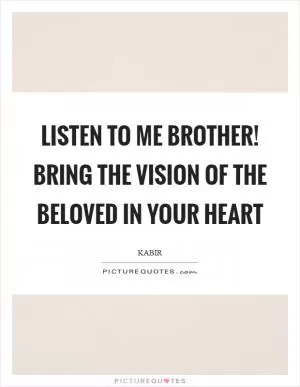

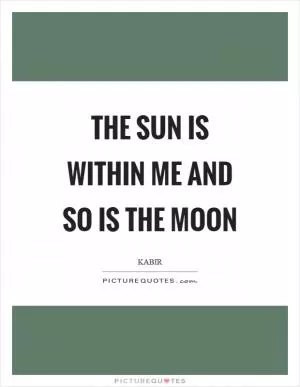




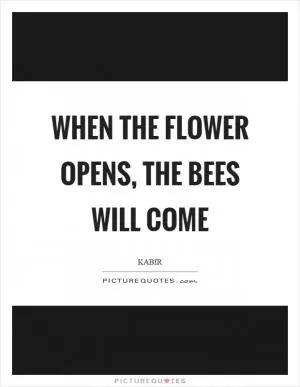
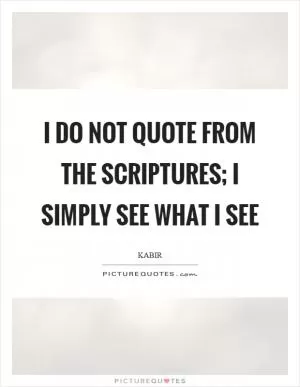

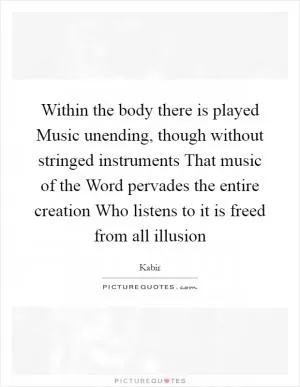
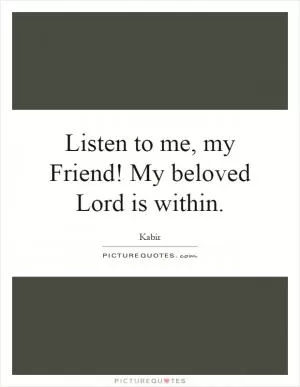
 Friendship Quotes
Friendship Quotes Love Quotes
Love Quotes Life Quotes
Life Quotes Funny Quotes
Funny Quotes Motivational Quotes
Motivational Quotes Inspirational Quotes
Inspirational Quotes